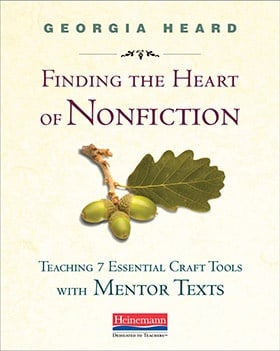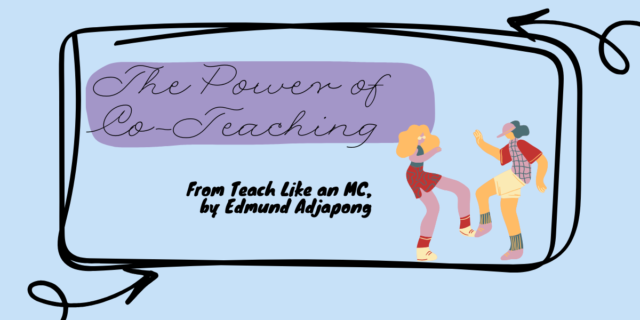
In part 1, Georgia told us about her two newest professional books. Now, in part 2, she gives us a glimpse into her own life as a writer and teacher.
What in your life as a writer has given you the most insight into teaching young writers?
When I was a writing student at Columbia University and at the same time a member of TCRWP, I traveled to classrooms all over NYC teaching writing. Those hundreds of hours in the classroom, along with reflections with my colleagues at Columbia and TCRWP, gave me invaluable insights into teaching writing. Also, my classes at Columbia University with some of the best writers in the world expanded my vision and knowledge of writing.
In Finding the Heart of Nonfiction, as you discuss mentor texts, you mention Stanley Kunitz and Anne LaMott as personal and in-print mentors for your writing life. Who are your mentors and go-to authors for teaching writing?
I have so many mentors, go-to authors, and colleagues I could fill this whole page with their names. There is a renaissance in the field of teaching writing, and I feel so lucky to have been part of such an amazing group from its very beginnings. I’m afraid if I started listing all my mentors I might leave someone out, but I’ll always be grateful to the very early days of TCRWP with Lucy Calkins, Shelley Harwayne, Hindy List, Ralph Fletcher, JoAnn Portalupi, Martha Horn, Jenifer Hall, and Jim Sullivan. And, of course, I’m indebted to the foundational work of Don Graves, Nancie Atwell, Don Murray, Tom Romano, Linda Rief, and Mary Ellen Giacobbe. Here I go, I’m already thinking about all the people I’ve left out!
As Don Graves taught us, a teacher’s own writing life is vital source material for teaching writing. What suggestions do you have for teachers who don’t feel confident as writers?
Write. Write. Write. Write at least one page in your journal every day. And if you’re just beginning to write, don’t stop to reread your words just yet and don’t listen to any critical voices in your head. Also, find a loving and gentle reader whom you can trust to give you wise, insightful guidance.



